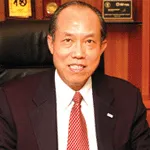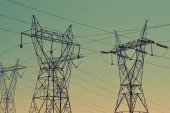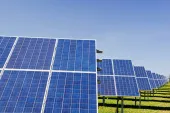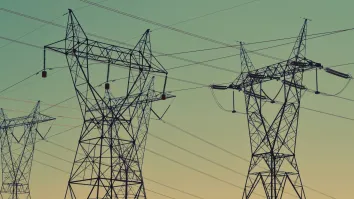
For Meiya Power, diversity is key to success
John Goss speaks exclusively to Alan Chan, Chairman and Chief Executive Officer of Meiya Power Company in Hong Kong about IPP’s and the difficulties faced by setting up power plants in China and building and operating IPP’s outside of China.
With such vast experience in the power sector especially when it comes to IPP’s, Meiya Power Company’s (MPC) Chairman and Chief Executive Officer, Alan Chan gives us his insight on how IPP’s will measure up in these difficult economic times and why the company decided to build and operate plants outside of China.
Given your experience with MPC, a power company that you and your team have built up from scratch, could you please explain why MPC is continuing to grow and develop in a power market that many foreign IPPs find difficult?
There are two major factors which made MPC more successful than other foreign owned IPPs in Asia. First, we have a management team with extensive international experience but more importantly, they have a very deep understanding of the business culture in Asia. I am sure that many other IPPs also have experienced international management teams but they often lack the deep understanding of the Asian culture.
Second, we have recruited a team of international and local employees who are very smart in our business, fiercely loyal to the company, and with a great passion for their work.
This result did not come by accidentally but was planned and developed over a multi-year span such that today, we have a very comprehensive management system and a unique corporate culture that enable us to recruit very talented people, retain them, and make them an integral part of the company such that no one wants to leave the company to work for some one else just for a small financial gain. We often hear people say that the employees are the most valuable asset of the company. But to actually realize that in a company is very difficult. That is where our management system and corporate culture come in which make the employees feel that they are the most valuable asset of the company. Our employees enjoy their work and their working environment and they are very happy to be with the company. Happy employees can achieve great things. When we recruit a new employee, we do not just look at the employee’s professional experience and background. More importantly, we also look for what we call the three “I”s which stands for Integrity, Intelligence, and Initiative. Our new employee must pass the three “I” test regardless of their professional qualification. It is our belief that the three “I”s make valuable employees. Ultimately, it is the people in MPC that makes MPC successful.
Why did MPC decide to build and operate power plants outside China and how do other Asian countries differ from China and how does MPC address these differences?
China is a very big power market and it will continue to provide plenty of opportunities for MPC. However, it is also our business strategy to develop geographical diversification and eventually become a Pan-Asia IPP. We have initially selected Korea and Taiwan as our outside China markets because of their stable and well regulated markets. Now we are actively looking at other Southeast Asia countries with very high growth in power demands.
With our extensive experience in China, we will be able to bring low cost and reliable equipment and contractors from China and build a very competitive plant.
We have also established partnering relationship with a couple of international coal suppliers and in certain situations we will also be able to bring coal supply to the project and alleviate the local coal shortage situation. Each country in Asia has its own culture and heritage although there are a number of common elements in all Asia countries. MPC’s management team has the ability to adapt to the local culture, as we have proven in Korea and in Taiwan, and combine this skill with the western management skill to benefit the local community.
Which were some of the difficulties faced by MPC in setting up power plants in China and how were these difficulties for a foreign IPP overcome?
The most difficult task for MPC to setup power plants in China is to recruit a sufficient number of talented local staff with good business acumen.
There are many talented professional individuals available in China but to successful run a power plant in China requires people who are also good in dealing with the constantly changing business environment and changing commercial conditions.
In spite of a large increase in human resources possessing business skills in China, it is still difficult to meet the demand in China as China has seen a high rate of growth in the last ten years and the talented individuals with both professional and business skills are quickly recruited.
We overcome this problem by implementing a vigorous recruiting program and internal training program to develop talents in this area.
We train and expose our PRC staff the western culture and business practices and we found that most are very eager to learn and adapt to them rather easily. We also supplement the trained local staff with PRC overseas returnees and Overseas Chinese from SE Asia who have the language skill and are willing to work in China.
How important are the plant’s performance and operational functions in increasing plant efficiency and overall performance?
Our power plant staff is constantly on the lookout to improve the efficiency of our plants. Energy is our primary business and we strive to be the most efficient operator in our business.
It not only makes sense in terms of the environmental benefit but also in terms of improving the bottom line. In recent years, with significant increase in the fuel cost, it is imperative that make our plants as efficient as possible and we have done a great number of efficiency improvement projects in our fleet.
Along these lines, we have not only strive to maximize the efficiency of our plants, we have also make the maximum use of the capacity of the equipments by performing power uprates on many of our plants so that we can increase the capacity of our plants with very little additional capital investment.
We have done this successfully on large coal fired plants such as our Jingyuan project in Gansu, in our cogeneration plants in the Jiangsu area, and in our hydro plants in Guangxi and Sichuan.
All these physical enhancements of the performance of our plants are very important to improve the financial performance of our investments.



















 Advertise
Advertise





